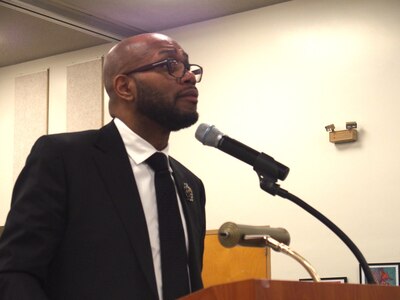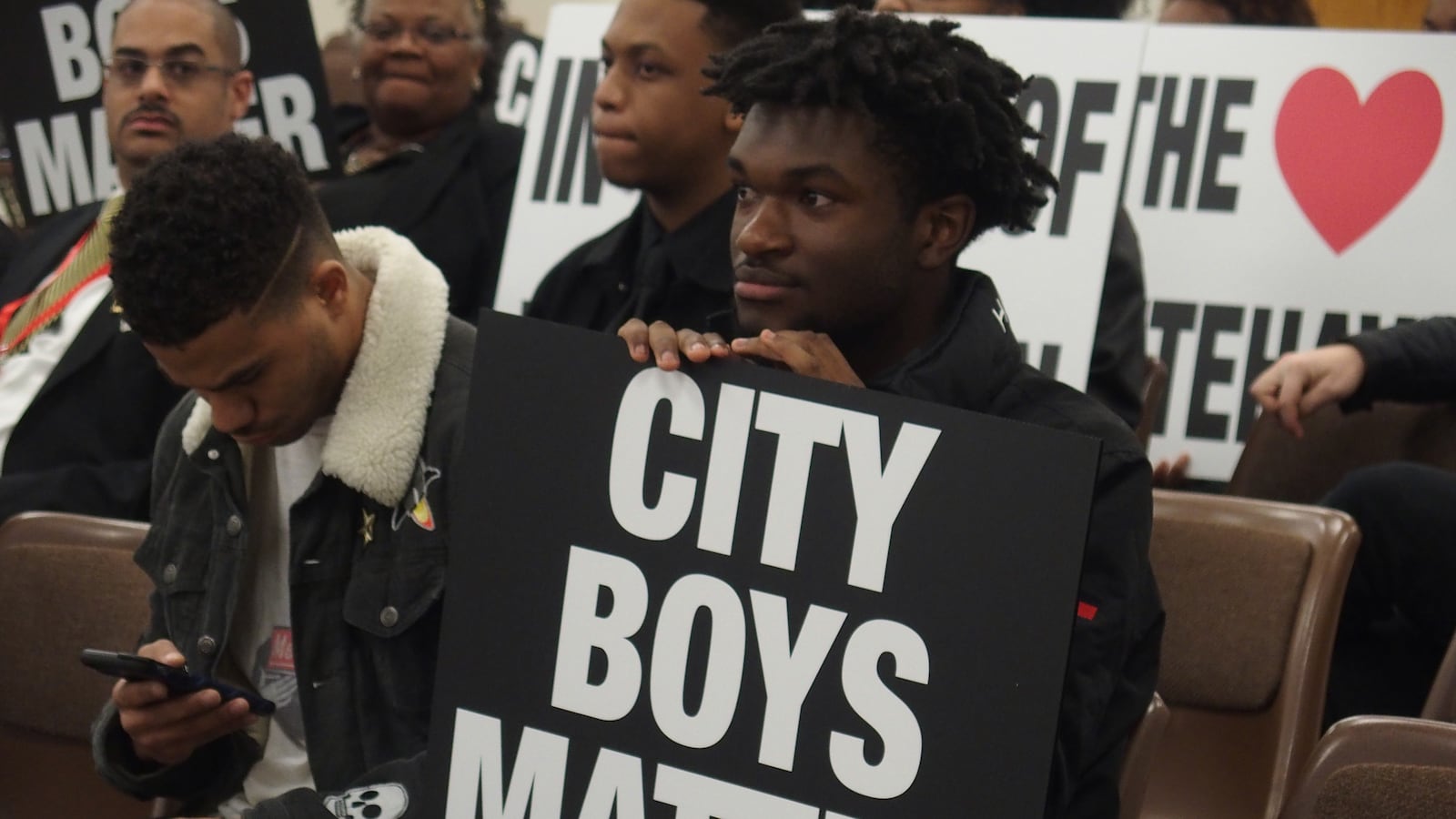After 10 years, City University Boys Preparatory will close at the end of the academic year.
Shelby County Schools recommended closure of the middle school in Whitehaven following a scheduled evaluation to determine if the district should renew its 10-year charter.
“Kids were regressing at City University Boys Preparatory,” said Brad Leon, the district’s chief of strategy and performance management. “Students were getting further and further behind.”
There were three other charters up for renewal, including a high school in City University’s network. But their academic performance merited a recommendation to stay open, Leon said.
The school board’s 6-3 vote Tuesday wraps up the only evaluation of charter schools eligible for renewal under Superintendent Dorsey Hopson’s leadership before he leaves in January. Board members Stephanie Love, Miska Clay Bibbs, and Joyce Dorse-Coleman voted to keep the school open.

At a hearing Tuesday afternoon to review the recommendation, Lemoyne Robinson, the charter network’s chancellor, said poor test scores were caused in part by the district defaulting on promised academic interventions and resources that he said were part of an annual fee the school paid to the district.
“When given what they needed, and what they’re promised, and what they paid for, they excelled,” Robinson told school board members.
Robinson said after the hearing that the former Memphis City Schools under Superintendent Kriner Cash provided access to several data management systems, a practice standardized test, and curriculum support for teachers.
But district leaders said there was no record of a contract that outlined those resources. And even if there were, “because of the autonomy charter schools have, this district has never had the philosophy or extended the opportunity to provide academic interventions to charter schools,” said Bill White, the district’s chief of planning and accountability.
Robinson also cited issues with the online rollout of the state’s standardized test, and relied heavily on evidence of the district’s own opposition of using the scores to make high-stakes decisions. But middle school students at City University in Memphis have taken state tests on paper, not online.
Charter schools are private organizations funded by public dollars that were created to give those nonprofits more control over teacher employment, curriculum, and school operations compared with district-run schools. In exchange for the extra autonomy, charter schools have more oversight by the local district.
About 40 parents, students, and school supporters came to the hearing urging board members to keep the school open.
“The experience at City is unlike any other school that I’ve been to,” said Malcolm King, who is a senior at the network’s high school and graduated from the middle school. He cited $750,000 in college scholarships and enrollment in two dual enrollment classes as proof of the school’s ability to prepare students.
“I would hate to see all the work go to waste,” he said.
Enrollment at the City University middle school for boys had reached its peak of 121 in 2012, but lost about a third of its students in 2014. By August, just 88 students had enrolled. Test scores had put the school in danger of closing in 2015 and also of appearing on the state’s priority list for the bottom 5 percent of schools. By state law, any charter school on that list must be have its charter revoked by the local district.
On the last round of state tests, 12 percent of students at the school scored at grade level in English and 9 percent scored at grade level in math, which was better than previous years and helped the school’s score in the district’s evaluation, Leon said.
Over the course of its history, the school achieved its highest scores during the 2014-15 school year, with 32 percent and 26 percent scoring at grade level in English and math, respectively. That’s when Robinson said his charter network chose to pay for resources he said he was denied after the city and county school systems merged in 2013.
Only four charter schools in Shelby County Schools performed more poorly than City University’s school for boys, Leon said.
That data spanning 10 years prompted district leaders to recommend charter revocation because it’s unlikely the school will significantly improve if allowed to stay open, Leon said. For comparison, 24 percent of students districtwide last year were at grade level in English and 29 percent were at grade level in math.
Eddie Jones and former district teacher Edmund Ford Jr, who are county commissioners that provide local funding for the district, came before the board to support the school.
“Almost four of the 10 years, you really couldn’t count their scores,” said Eddie Jones, whose district includes the middle school. “One [year] the state said throw it out. You had one with technical difficulties, and one you could not use.”
He added that if the board voted to close the charter school, it could set a precedent for the state to use the same test scores to close district-run schools.

